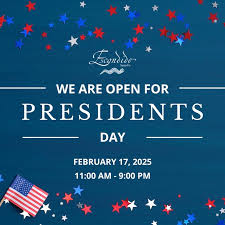Understanding Presidents Day: History and Celebrations

Introduction
Presidents Day, officially known as Washington’s Birthday, is observed on the third Monday of February each year in the United States. This holiday serves as a tribute to all U.S. presidents, with a particular emphasis on George Washington, the country’s first leader. Its significance is increasingly relevant as it not only celebrates the contributions and legacy of the nation’s founding fathers but also promotes discussions around leadership and civic responsibility.
History of Presidents Day
Presidents Day was established in 1971 following the Uniform Monday Holiday Act, which aimed to provide more three-day weekends for workers by moving the celebration of Washington’s Birthday to a Monday. The act shifted the holiday from February 22 to the third Monday of February, primarily to celebrate Washington but over time has evolved to honour all U.S. presidents. Various states have also initiated their own recognitions of Presidents Day, leading to differing applications of the holiday across the country.
Celebrations Across the United States
Although Presidents Day is a federal holiday, its observance can vary by state. For many, it marks the end of winter and is associated with widespread sales and promotions in retail stores, akin to Black Friday. Furniture and car dealerships particularly capitalise on the holiday with significant discounts. Many educational institutions incorporate lessons about U.S. presidents into their curricula during this time, allowing students to learn about the history and impact of these leaders. Museums and historical sites often host special events and exhibits, encouraging families to engage in educational activities together.
Current Relevance and Conclusion
As Americans commemorate Presidents Day in 2023, discussions about leadership remain vital. In light of recent political dynamics, the day offers a moment for reflection on the qualities of effective governance and civic engagement. While the holiday is rooted in the past, it serves as a reminder that each citizen has a role in shaping the democratic process. Looking ahead, Presidents Day will continue to embody the spirit of American leadership and inspire future generations to engage actively in their communities.
In conclusion, Presidents Day serves not only as a celebration of historical leadership but also as a platform for fostering contemporary discussions about governance and civic duty. As the holiday evolves, so too does its significance, reinforcing the idea that the legacy of leadership is greatly intertwined with the people it serves.









